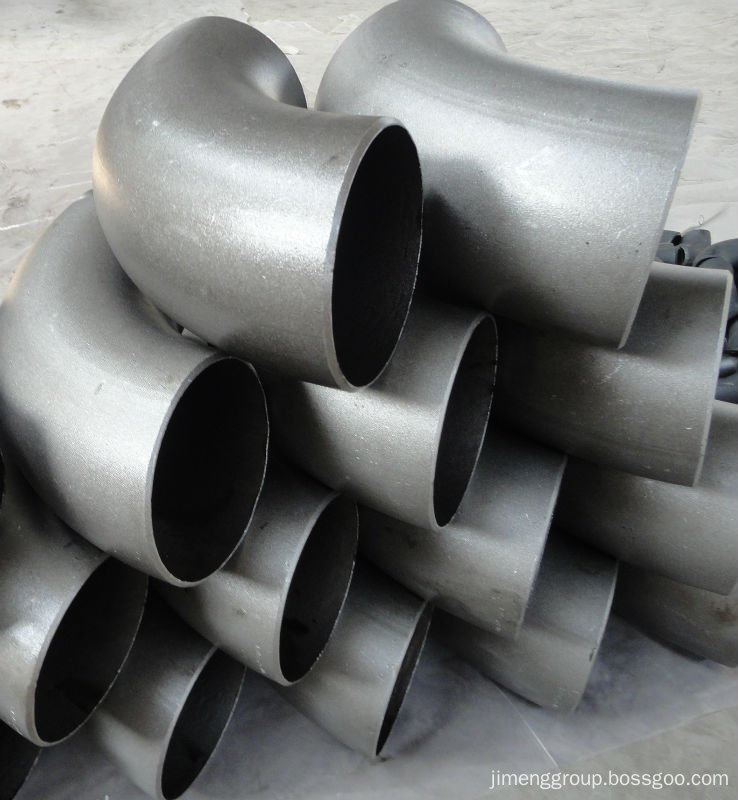For a long time, Chinese auto parts companies have been known for their “small, scattered, chaotic, and bad†and counterfeiting has been spreading around. Many enterprises that started from the workshop-type production have been repeatedly accused, punished and even “encrusted†by all parties in the industry for counterfeiting. However, the reporter has recently learned that such a situation: Some parts companies that copy other people's products are facing the embarrassment of how to establish their own product brands.
Counterfeit: "Let's lift a stone and drop his own foot"
Most of these companies are a group that has experienced a big wave of scouring the market and emerged. The reporter learned from the interview that counterfeiting is the main way for them to enter the market quickly. The imitated form is almost everything from simply imitating the shape, color, and packaging of a product to mimicking the trademark and name of the product, and even the name and location of the manufacturer. In the initial stage of entering the market, the profit is their main motivation, and with the continuous development of the enterprise, the company has already had a certain amount of independent research and development capabilities, product quality has been improved, and the market share has also been increasing. At present, the products of these companies have been fully able to meet the market requirements in terms of quality performance, and they have a certain market share, but their headache is that their products do not have their own brands.
Mr. Dong's troubles are a typical example. He is the owner of a private enterprise that produces turbochargers. Many years ago, due to the bankruptcy of his company, Mr. Tung left to start his own business. His many years of experience made him realize that the turbocharger market has great potential. In the early stage of production, in order to open the market, the product's name and trademark are very similar to those of an internationally renowned company in the industry. Initially, Mr. Dong hoped to sell his products with the help of the market popularity of the other party’s products. He told reporters that in fact this method is indeed very effective, because consumers are not familiar with the product, plus the quality of the product itself, Mr. Dong's products have occupied a considerable market share in a few years, some products have been sold overseas market. However, what troubled Mr. Dong was that the once profitable brand began to become a “stumbling block†to establish its own brand and penetrate into the market; more troubling was that its products also suffered counterfeiting.
Return: The "guerrilla" changes to the "regular army"
Mr. Dong's troubles reflect the plight of many domestic parts and components companies. As Mr TUNG said, their present situation can be described as a dilemma. On the one hand, if we continue to take the old path, it is equivalent to raising public awareness of others’ brand awareness, and risking the other party’s accusation of infringement; on the other hand, if we remodel our own brand, it means that we have done our work in previous years. Need to re-create the market awareness of the product, and in today's increasingly fierce market competition, time is the most costly company can not afford.
At present, counterfeit products of parts and components companies are mostly concentrated in the automotive aftermarket. According to statistics, there are 5,000 parts and components enterprises with a production value of more than 5 million yuan in China and tens of thousands of them are not registered. Due to weak national supervision and the rapid development of China's auto industry, these parts and components companies have mushroomed. The companies that counterfeit others' products are mostly private enterprises, and some are even family-run enterprises. They are small in scale, flexible in system, and low in price. It responds quickly to market demand and is very competitive in the aftermarket. These counterfeit companies are mainly concentrated in Jiangsu, Zhejiang, and Hebei.
The country’s crackdown on counterfeit products is very large. As the worst victim vehicle company, it spared no efforts. However, people in the industry do not agree with the significance of such counterfeiting. They believe that the current crackdown on counterfeit parts and components companies focuses on one-off penalties instead of systematically guiding them to the path of standardized production and brand management. Local governments are driven by local interests and usually take some protection for these companies. An official in Yuhuan, Zhejiang Province, said that while fighting against counterfeit companies, they are paying more attention to nurturing and supporting those companies that have begun to take shape to build their own brands and gradually become formal.
Way Out: Establishing Brand and Enterprise Integration Simultaneously
Last May, commissioned by the Ministry of Commerce, the China International Electronic Commerce Center and the China Automotive Engineering Society formally established the credit system for the Chinese auto parts industry. At present, this work is progressing smoothly. Zhao Lili, director of the consulting department of the China Automotive Engineering Society, told reporters: “The establishment of a credit system for China’s auto parts industry is to build an international, fair, authoritative, high-level, and powerful international exchange platform for promoting the internationalization of China’s auto parts industry. The establishment of China's auto parts enterprises credit certification standards, credit investigation and certification assessment, standardize the market order, recommend outstanding brands to domestic and foreign markets, so that the fake and shoddy products of untrustworthy and unscrupulous manufacturers lose market space and automatically exit the market.
Industry insiders believe that the current phenomenon of counterfeiting in Chinese parts and components companies is normal for the development of parts and components companies and is a stage that must be experienced. Apart from requiring the government to carry out the necessary supervision and regulation, the company itself must also step out as soon as possible. This stage, to create their own brand, especially after the product reaches a certain scale, the brand's market effect will usually appear later.
Experts believe that parts and components companies should speed up the pace of integration, as soon as possible to form the scale advantages of the brand, to better participate in international competition.
Hebei Jimeng Highstrength Flange-tubes Group Co.,Ltd. is mainly produce Q235 Steel Elbow.
Size range: seamless 1/2" to 24"
seam weldding 4" to 48"
Material: carbon steel ASTM A234 wpb, wpc; A106; st37.0; S235JR;
SS400; CT20, 20#; Q235A; Q235B
Standard: ANSIB16.9, ASME B16.28; DIN 2605, DIN 2615, DIN2616,
DIN2617;GOST 17375; GOST 17378; JIS2311
Wall thickness: 2MM----25MM
SCH5,SCH10S, SCH10, SCH20, SCH30, STD, SCH40,
XS, SCH60, SCH80, SCH100, SCH120, SCH140,
SCH160, XXS, SGP, LG,
Products:
Elbow: 45 deg, 90 deg, 180 deg, long redius, short redius

Q235 Steel Elbow
Q235 Steel Elbow, Q235 Stainless Steel Elbow, Q235 Steel Pipe Elbow
Hebei Jimeng Highstrength Flange-tubes Group Co.,Ltd. , https://www.jimengflange.com